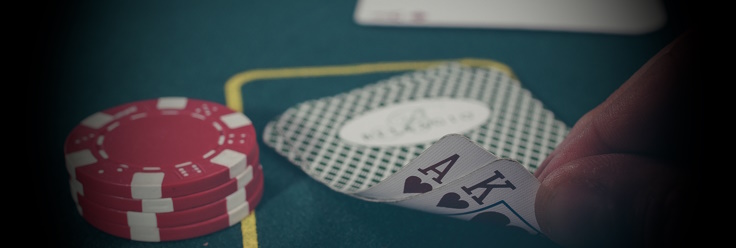
-
 Gates of Olympuspragmaticplay
Gates of Olympuspragmaticplay -
 Sweet Bonanzapragmaticplay
Sweet Bonanzapragmaticplay -
 Big Bass Bonanzapragmaticplay
Big Bass Bonanzapragmaticplay -
 Wolf Goldpragmaticplay
Wolf Goldpragmaticplay -
 Bigger Bass Bonanzapragmaticplay
Bigger Bass Bonanzapragmaticplay
-
 Gates of Olympuspragmaticplay
Gates of Olympuspragmaticplay -
 Sweet Bonanzapragmaticplay
Sweet Bonanzapragmaticplay -
 Big Bass Bonanzapragmaticplay
Big Bass Bonanzapragmaticplay -
 Wolf Goldpragmaticplay
Wolf Goldpragmaticplay -
 Bigger Bass Bonanzapragmaticplay
Bigger Bass Bonanzapragmaticplay
The Psychology of Gambling: What Makes People Gamble and How to Avoid Addiction?

What Makes People Gamble
The allure of winning is one of the primary motivations for people to gamble. The chance of hitting the jackpot and winning a large sum of money is a powerful draw for many. The thrill of risk-taking is another factor that drives people to gamble. The adrenaline rush that comes with placing a bet or spinning a roulette wheel can be addictive.
Social and environmental factors also play a role in gambling behavior. People who grow up in families or cultures where gambling is normalized are more likely to engage in it. The availability of gambling opportunities can also influence behavior. For example, people who live near a casino may be more likely to gamble than those who do not.
Psychological factors can also contribute to gambling behavior. Impulsivity, or the tendency to act without thinking, is a common trait among gamblers. Sensation-seeking, or the desire for novel and intense experiences, is another psychological factor that can drive gambling behavior.
The Dangers of Gambling Addiction
While gambling can be a fun and entertaining activity, it can also become addictive. Gambling addiction, also known as compulsive gambling or problem gambling, is a serious condition that can have negative effects on a person's life, relationships, and finances.
Gambling addiction is characterized by an inability to control gambling behavior, even when it has negative consequences. People with gambling addiction may experience financial problems, legal issues, and problems in their personal and professional lives. They may also experience depression, anxiety, and other mental health issues.
According to the National Council on Problem Gambling, about 2 million adults in the United States meet the criteria for problem gambling. This represents about 1% of the adult population.
Signs of Gambling Addiction
There are several behavioral and emotional symptoms that may indicate a problem with gambling. These include:
• Spending more time and money on gambling than intended
• Chasing losses by continuing to gamble in an attempt to win back lost money
• Lying to friends and family about gambling habits
• Becoming defensive or angry when confronted about gambling
• Neglecting personal and professional responsibilities in order to gamble
• Experiencing withdrawal symptoms when not gambling, such as irritability or restlessness
How to Avoid Gambling Addiction
If you're concerned about developing a gambling addiction, there are several steps you can take to avoid it. First, it's important to practice responsible gambling. This means setting limits on how much time and money you spend on gambling and taking breaks to avoid becoming too immersed in the activity.
It's also important to be self-aware and know your triggers. For example, if you find that you're more likely to gamble when you're stressed, find other ways to cope with stress, such as exercise or meditation.
Finally, if you're struggling with a gambling addiction, seek professional help. Treatment for gambling addiction may include therapy, support groups, and medication.
Conclusion
Gambling can be a fun and exciting activity, but it can also become addictive and have negative consequences. Understanding the psychology of gambling and the risks of addiction can help you make informed decisions about your gambling habits. By practicing responsible gambling and seeking help if necessary, you can avoid the pitfalls of gambling addiction and enjoy the activity in a safe and healthy way.
FAQ
Is all gambling addictive?
No, not all gambling is addictive. Gambling addiction is characterized by an inability to control gambling behavior, even when it has negative consequences. Most people are able to gamble for fun and entertainment without developing an addiction.
How can I tell if I have a gambling problem?
There are several signs that may indicate a problem with gambling, including spending more time and money on gambling than intended, chasing losses, lying about gambling habits, neglecting personal and professional responsibilities, and experiencing withdrawal symptoms when not gambling.
Can gambling addiction be treated?
Yes, gambling addiction can be treated. Treatment may include therapy, support groups, and medication.
What are some tips for responsible gambling?
Tips for responsible gambling include setting limits on how much time and money you spend on gambling, taking breaks to avoid becoming too immersed in the activity, and being self-aware and knowing your triggers.
What should I do if I think I have a gambling addiction?
If you're concerned about developing a gambling addiction, seek professional help. Treatment for gambling addiction may include therapy, support groups, and medication.
Play now More newsInteresting articles
Baccarat FAQ
Book of Dead Slot Review
Burning Stars 3™ Online Slot Review
Can You Make Money Playing Online Roulette?
Chilli Heat Megaways Review



